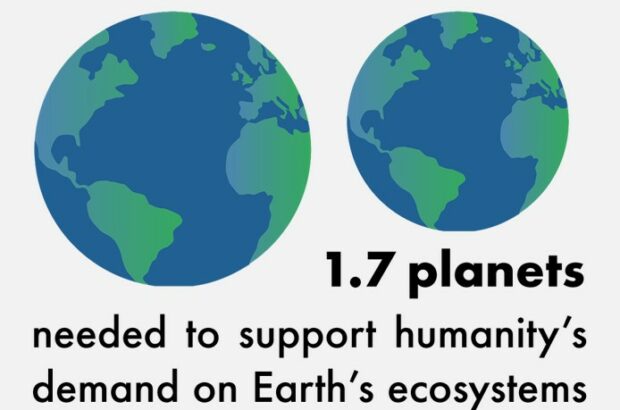On Earth Overshoot Day Matt Bradley explores how we must consider not only the carbon impact of our solutions, products, and services, but also their true planetary effects.

Balancing the books: Earth Overshoot Day unpacked
Governments and societies worldwide aspire to thrive within robust economies and societies. However, this aspiration hinges on a healthy and balanced planet.
Since the 1970s, humanity’s ecological footprint has diverged from Earth’s biocapacity. Our planet’s resources now sustain us only until early August, half of a calendar year.
According to the World Economic Forum, we must push back Earth Overshoot Day by 19 days annually for the next seven years to achieve the United Nations’ IPCC target of a 43% reduction in global carbon emissions by 2030 (compared to 2010).
This year, Earth Overshoot Day falls on 1st August. While it isn’t in free fall, it remains a day earlier than in 2023. Notably, the first Earth Overshoot Day, recognised by the United Nations, occurred on December 30, 1970.
Global businesses significantly contribute to rising carbon emissions and planetary impacts. However, they can also be part of the solution. In our technology-driven age, we must consider not only the carbon impact of our solutions, products, and services but also their true planetary effects. What role do we play in preserving and cherishing our only planet and home?
Balancing act: Nurturing earth’s resources
Our planet intricately balances its ecosystems, species, and natural processes. Consider forests, they serve as more than just carbon sinks; they also purify water and preserve habitats, playing a vital role in maintaining a healthy planet.
As stewards of sustainable resource management, we must harmonize our ecological footprint with Earth’s biocapacity—the planet’s ability to provide and renew its resources.
Let’s delve deeper
The Ecological Footprint quantifies human demand on natural capital. It accounts for land and water needed for resource production, infrastructure, and waste absorption, including carbon emissions.
Imagine it as the number of planets required to sustain our current lifestyle. Currently, on Earth Overshoot Day, we operate at 1.7 planets — we only have one.
Biocapacity refers to a biologically productive area’s capacity to generate ongoing renewable resources and absorb waste. Essentially, it measures how much an ecosystem can produce and filter. When our ecological footprint surpasses biocapacity, it creates a deficit — a critical concern for understanding our impact on the environment.
In our delicate balancing act, let’s strive for sustainable choices that safeguard our planet’s future.

Empowering Sustainable Digital Transformation
The Government Digital Sustainability Alliance (GDSA) is dedicated to shaping a vision and actionable steps for addressing the planetary impacts of technology.
We firmly believe in leveraging technology, data, and our ecosystem of alliance partners to create a sustainable future — one that addresses urgent climate challenges and leaves a positive legacy for generations to come.
Consider this: Whether through perceived or planned obsolescence, we often take access to the latest tech for granted. We use it to enhance experiences, optimise processes, and drive positive environmental and societal change. However, have you ever considered the unseen impacts?
At GDSA, we’re developing assessment frameworks to uncover the true planetary effects of the solutions, products, and services we design, build, and operate. We delve into dependencies and impacts across upstream, direct, and downstream activities.
Take action today
To understand where you can make a difference on a personal scale, visit WWF’s Ecological Footprint Calculator to take your first steps toward becoming part of the solution. Furthermore, taking time to explore ENCORE will enable a better grasp on how your business sector both depends on and impacts nature.
We may not be able to turn back time, but through balancing progress with ecological responsibility we can begin to make an impact and turn back the trajectory of Earth’s Overshoot Day.
Matt Bradley is a Sustainability Director at Capgemini, and leads the GDSAs Planetary impact working group.
Earth Overshoot Day is marked every year at the point when human consumption outstrips the resources nature can regenerate.
If you’re interested in finding out more about what we do please get in touch.

Leave a comment